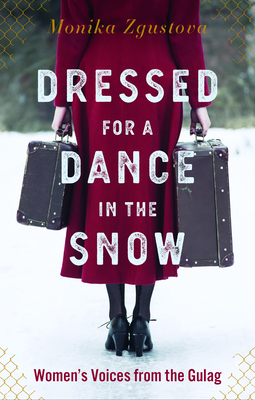Over 14 million people were imprisoned in the Gulag labor camps. Roughly 10-15% of them were women. The stories of nine of them can be found within these pages. Author Monika Zgustova trekked to Moscow, to Paris, to London to listen to these women and record their testimonies.
These women were political prisoners. Their crimes? Being the daughter, or granddaughter, or sister, or friend, or lover of someone the Stalin-era government saw as a threat. Refusing to denounce their friends and family, or even perfect strangers. Being in the wrong place at the wrong time. Thinking for themselves. Their punishments? Sentences of up to 25 years in the forced labor camps. Inadequate food, clothing, medical care, housing, and tools to complete the work. Being cut off from family and friends on the outside. Being ripped away from any connections they made within the gulag and sent on to other camps. Mental torture. Their rescuers? Books. Poetry. Nature. Each other.
Zgustova allows the women to tell their own stories, with as little input from her as necessary. As such, the narrative is a little uneven. Some of the women are better storytellers than others. I do wish the author had smoothed over these moments to make the book more readable. But I also understand the desire to let these women speak for themselves.
Despite the sometimes bumpy narrative, this book is well worth reading. The strength of these women, both while in the gulag and as elderly women looking back, is inspiring. And their ability to find beauty in the depths of despair is a lesson to us all.
